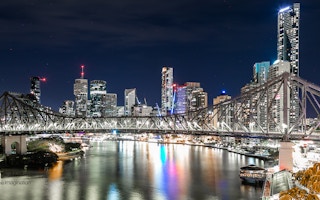Sustainable services company, thinkstep-anz assessed the top 50 companies on both countries’ stock markets by looking at annual and sustainability reporting.
Of the 56 companies that had selected SDGs, 55 included SDG 13: climate change, which states the need to take “urgent action to combat climate change and its impacts.”
Companies that selected SDG 13 included Australia’s big four banks and two largest supermarkets, as well as many in the energy and mining sectors including AGL, Origin Energy, Ampol, BHP, RIO Tinto, Fortescue and Woodside Petroleum.
Thinkstep-anz chief executive Barbara Nebel told The Fifth Estate that while overall the picture was promising, some companies were playing “SDG bingo”, simply following other businesses or appeasing stakeholders without committing to change.
“There’s a big stakeholder drive-in having to do something about climate action so I think no matter what an organisation’s sustainability strategy is, climate change has to be part of it,” Nebel said.
Just 38 per cent of companies with selected SDGs described their process of selection and only about a third set specific key performance indicators (KPIs) to measure their success.
However, Nebel said that a few companies had directly related the SDGs to what they do and had actively employed strategies to achieve them.
Those which had made quantitative company-specific goals related to SDG 13 were AGL, Aristocrat, ANZ, BHP, Brambles, Fortescue, NAB, Transurban and Fortescue. Meanwhile, Sydney Airport opted for generic UN targets.
Targets of SDG 13 include:
- Strengthen resilience and adaptive capacity to climate-related hazards and natural disasters in all countries
- Integrate climate change measures into national policies, strategies and planning
- Improve education, awareness-raising and human and institutional capacity on climate change mitigation, adaptation, impact reduction and early warning
At the end of last financial year, BHP was failing to meet its climate change target to reach below 2017 greenhouse gas emission levels while maintaining the growth of the business, using carbon offsets “as required”.
To BHP’s credit, the 2017 baseline target was adjusted following the sale of at least US$10.8 billion worth of onshore oil and gas assets in the US to ensure “ongoing comparability of performance.”
In 2020 BHP’s self-calculated emissions were 8 per cent higher than in 2017 at 15.8 million tonnes of carbon dioxide equivalent, however, were reportedly down from 2018’s emissions levels of 17 million tonnes.
During the 2019-2021 period of thinkstep-anz’s survey, the number of companies that had explicitly selected SDGs increased by around 20 per cent, and a further five companies added specific SDG targets.
Most companies selected multiple SDGs to include in their reporting, with the most common combination being SDG 13: climate change, SDG 8: decent work and economic growth, and SDG 5: gender equality.
“So, you basically have an economic, an environmental, and a social which together make the most frequent selection of SDGs. So it’s quite even which I think is good,” Ms Nebel said.
“I do think it’s the companies that we need to actually drive change. So, the countries have signed up and pledged commitment to the SDGs but the companies are the ones who will actually drive the change.”
This story was published with permission from The Fifth Estate.










